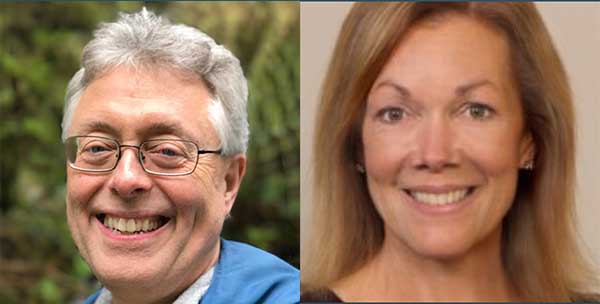Susan Dugan and Bruce Rawles read and talk about a favorite section “How is judgment relinquished?” (M-10) from the Manual For Teachers from A Course In Miracles in this YouTube video conversation. This section reminds us that by merely questioning the dubious judgment of our egos, we truly have nothing (the sum total of ego’s “wisdom”) to lose and everything (Holy Spirit’s all-encompassing vision) to gain! :-)
Here are the first three paragraphs of the “How is judgment relinquished?” (M-10) section:
“Judgment, like other devices by which the world of illusions is maintained, is totally misunderstood by the world. It is actually confused with wisdom, and substitutes for truth. As the world uses the term, an individual is capable of “good” and “bad” judgment, and his education aims at strengthening the former and minimizing the latter. There is, however, considerable confusion about what these categories mean. What is “good” judgment to one is “bad” judgment to another. Further, even the same person classifies the same action as showing “good” judgment at one time and “bad” judgment at another time. Nor can any consistent criteria for determining what these categories are be really taught. At any time the student may disagree with what his would-be teacher says about them, and the teacher himself may well be inconsistent in what he believes. “Good” judgment, in these terms, does not mean anything. No more does “bad.”
It is necessary for the teacher of God to realize, not that he should not judge, but that he cannot. In giving up judgment, he is merely giving up what he did not have. He gives up an illusion; or better, he has an illusion of giving up. He has actually merely become more honest. Recognizing that judgment was always impossible for him, he no longer attempts it. This is no sacrifice. On the contrary, he puts himself in a position where judgment through him rather than by him can occur. And this judgment is neither “good” nor “bad.” It is the only judgment there is, and it is only one: “God’s Son is guiltless, and sin does not exist.”
The aim of our curriculum, unlike the goal of the world’s learning, is the recognition that judgment in the usual sense is impossible. This is not an opinion but a fact. In order to judge anything rightly, one would have to be fully aware of an inconceivably wide range of things; past, present and to come. One would have to recognize in advance all the effects of his judgments on everyone and everything involved in them in any way. And one would have to be certain there is no distortion in his perception, so that his judgment would be wholly fair to everyone on whom it rests now and in the future. Who is in a position to do this? Who except in grandiose fantasies would claim this for himself?” – M-10.1-3
(This video was recorded on June 12, 2020.)
If you have questions or comments about this video, prior videos in this ACIM-related video series or other Course-related topics, please email them via the ACIMblog.com contact form. Susan and Bruce will review and try to respond to questions and suggestions for future conversations. We look forward to extending the conversation with you!
Here are some prior ACIM-related conversations with Susan Dugan and Bruce Rawles.
